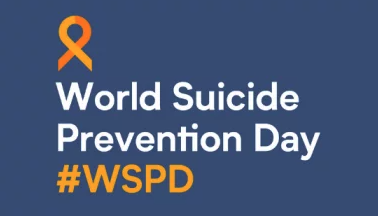In commemoration of World Suicide Prevention Day on September 10th, we asked our colleague, Alice, to share her experiences of helping suicidal people. Join us as we delve into her insights and learn valuable ways to support someone facing a suicidal crisis
I volunteer for a charity that offers face to face support to people who are feel that life is no longer worth living. The charity offers a safe place for anyone to come and talk freely and confidentially to warm, non-judgemental volunteers who are willing to engage with their feelings and support them through their darkest times.
I am not a medical expert, nor am I there to offer advice or opinions. My role as a trained volunteer is to provide a safe space for those in need. I am there to listen, without trying to “sort them out” or offer any advice.
The approach I take is rooted in curiosity – almost like that of a child. I ask open-ended questions, inviting our visitors to share their thoughts, experiences and emotions. The simple phrase, “Can you tell me about that?” often opens the door to deeper conversations. Some find it easy to open up, while others do struggle. Regardless, the ultimate goal is to make them feel heard, sometimes for the very first time in their lives.
A critical aspect of the role is demonstrating emotional strength. I have to show that I can handle anything that is being shared. While there are moments where I may visibly convey my emotional responses to the stories I hear, it’s really important to show that I can manage these emotions without becoming overwhelmed. As volunteers, we are often the only people that our visitors can discuss their suicidal thoughts with, so it’s essential that they trust us completely.
In this role, I cannot be afraid to ask the tough questions about suicidal intentions and plans. While these conversations can be challenging, they are necessary to ensure that the people we see feel they can safely talk about what they are going through in a supportive and compassionate environment.
I have found this work to be a hugely rewarding experience. It’s a reminder that sometimes, all someone needs is a compassionate listener and I’ve learned that being there for someone in their darkest moments can make an enormous difference. At the end of the day, being a volunteer in this field is not about having all the answers or solving every problem. It’s about being there when someone needs it most and letting them know that they are valued, heard, and supported on their journey to better days.
How to offer support to someone you care about who may be struggling with thoughts of suicide.
Let the person know that you care about them. Sometimes, simply hearing that someone cares can make a big difference.
Stay in touch with them regularly, even if it means checking in daily. Consistent communication shows that you’re there for them and provides an opportunity for them to open up when they’re ready.
Be Patient: Understand that it might take time for the person to feel comfortable sharing their feelings. Be patient and don’t push them to talk if they’re not ready.
Ask Open-Ended Questions: Encourage them to express their emotions by asking open-ended questions like, “How are you feeling today?” or “Can you tell me more about what’s been going on?”
Be a good listener. Allow them to speak without judgment or interruption. Avoid giving unsolicited advice or opinions. Sometimes, people just need someone to listen.
Avoid comparing their situation to your own or anyone else’s. Each person’s experience is unique, and comparisons can invalidate their feelings.
If you suspect they might be feeling suicidal, don’t be afraid to ask directly. You can say, “I’ve noticed you’ve been going through a tough time. Have you been having thoughts of suicide?” Asking this question gives them permission to talk openly and lets them know they are not a burden
If they express a desire for help, help them find the right resources. This might include contacting a mental health professional (like a therapist or psychiatrist) or their GP, informing their friends and family, or suggesting they call a crisis helpline or a local crisis centre.
Mental health crisis help lines
The Samaritans. 24 hours a day, 365 days a year. Call 116 123 (free from any phone), email jo@samaritans.org or visit some branches in person. Welsh Language Line on 0808 164 0123 (7pm–11pm every day).
SANEline. If you’re experiencing a mental health problem or supporting someone else, call SANEline on 0300 304 7000 (4.30pm–10.30pm every day).
National Suicide Prevention Helpline UK. Offers a supportive listening service to anyone with thoughts of suicide on 0800 689 5652 (open 24/7).
Campaign Against Living Miserably (CALM). Call the CALM on 0800 58 58 58 (5pm–midnight every day) . Or if you prefer not to speak on the phone, you could try the CALM webchat service.
The Mix. If you’re under 25, call The Mix on 0808 808 4994 (3pm–midnight every day), request support by email using this form on The Mix website or use their crisis text messenger service.
Papyrus HOPELINEUK. If you’re under 35 and struggling with suicidal feelings, or concerned about a young person who might be struggling, call Papyrus HOPELINEUK on 0800 068 4141 (weekdays 10am-10pm, weekends 2pm-10pm and bank holidays 2pm–10pm), email pat@papyrus-uk.org or text 07786 209 697.
Nightline. If you’re a student, you can look on the Nightline website to see if your university or college offers a night-time listening service. Nightline phone operators are all students too.
Switchboard. If you identify as gay, lesbian, bisexual or transgender, you can call Switchboard on 0300 330 0630 (10am–10pm every day), email chris@switchboard.lgbt or use their webchat service. Phone operators all identify as LGBTQ+.

